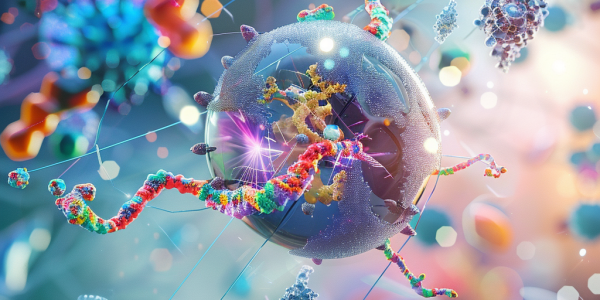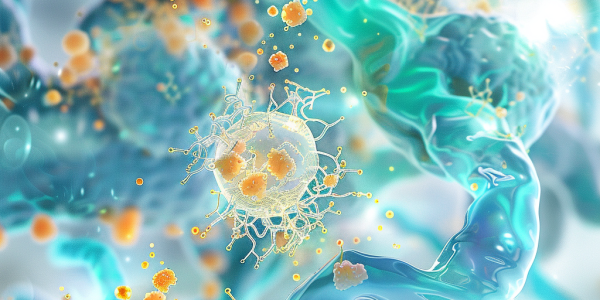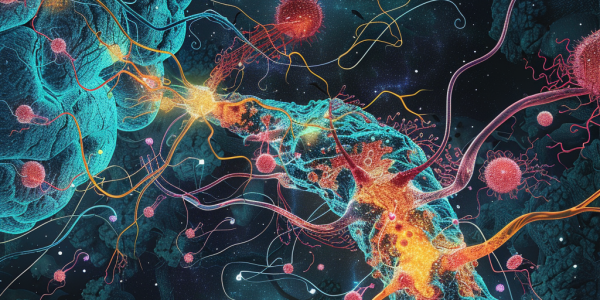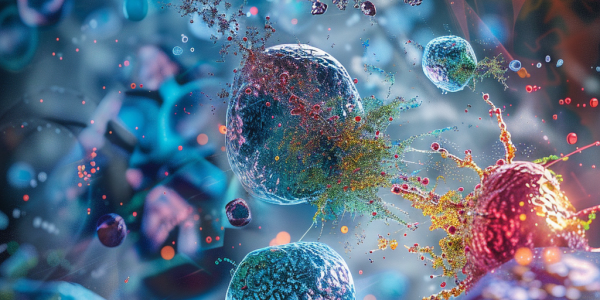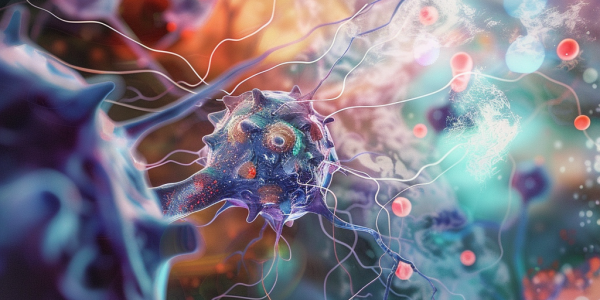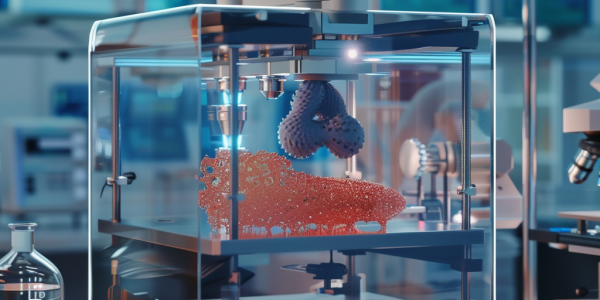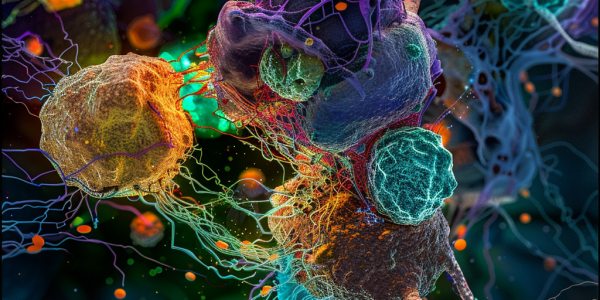CZI’s AI Initiatives Transform Biomedical Research and Education in 2024
In 2024, the Chan Zuckerberg Initiative (CZI) has made significant strides in integrating artificial intelligence (AI) into biomedical research and education. By building advanced computing systems and AI-powered virtual cell models, CZI is accelerating scientific discovery and enhancing educational tools for teachers. This collaborative approach is set to unlock groundbreaking insights into cellular behavior and revolutionize the understanding of health and disease.
MIT Researchers Unveil Breakthrough in Metabolic Imaging Techniques
A groundbreaking study from MIT introduces a novel metabolic imaging technique that significantly enhances penetration depth, allowing for clearer and more detailed visualization of living tissues. This innovative approach accelerates imaging processes and eliminates the need for tissue preprocessing, paving the way for advancements in cancer research, drug discovery, and more.
Groundbreaking Study Advances Gene Therapy with Engineered Virus-Like Particles
A groundbreaking study published in ACS Nano reveals how researchers at the National Physical Laboratory, in collaboration with IBM and STFC, have developed artificial virus-like particles (virions) for targeted genetic delivery. This innovative approach promises advancements in gene therapy and personalized medicine, addressing drug delivery challenges while potentially offering new antibiotic alternatives. Learn more about the implications of this research for the future of biotechnology and healthcare.
Japanese Researchers Develop Innovative Reporter Protein to Study Protein Biogenesis
Researchers in Japan have developed a groundbreaking reporter protein to study protein biogenesis at the endoplasmic reticulum (ER). This innovative technique enables real-time monitoring of secretory protein production, crucial for understanding diseases linked to protein misfolding and ER stress. By targeting the ER with a modified firefly luciferase, scientists can visualize protein behavior and investigate the impacts of inhibiting key enzymes like Ero1α. This advancement promises to enhance diagnostic tools and therapeutic strategies for various health conditions.
New Study Reveals Glioblastoma’s Integration into Brain Circuits
Recent research from Heidelberg University reveals new insights into glioblastoma, highlighting how tumor cells integrate into brain circuits. This groundbreaking study, published in Cell, uncovers the complex interactions between aggressive brain tumors and nerve cells, paving the way for innovative therapies. Led by Dr. Varun Venkataramani, the research utilized modified rabies viruses to track glioblastoma cell behavior, emphasizing the need for ongoing studies to improve treatment outcomes for this challenging brain cancer.
Cornell Study Reveals Insights into Muscle Regeneration and Aging
Cornell University engineers have revealed new insights into muscle regeneration and aging, highlighting how immune cell interactions and stem cell states change over time. Their study, published in Nature Aging, identifies critical factors affecting muscle repair in older mice, paving the way for potential therapies to combat age-related muscle degeneration.
Study Reveals Neurogenesis’s Key Role in Cognitive Functions and Epilepsy
A groundbreaking study published in Cell Stem Cell reveals the crucial role of neurogenesis in adult brains, particularly its impact on verbal learning and memory. Conducted by researchers at USC, the study highlights how generating new neurons can mitigate cognitive decline, especially in patients with drug-resistant epilepsy. The findings suggest that enhancing neurogenesis may lead to innovative therapeutic strategies for improving cognitive functions in adults suffering from epilepsy and related disorders.
Macrophages: Immune Cells’ Surprising Role in Motor Control and Metabolism
Groundbreaking research from the University of Copenhagen and Imperial College London reveals that macrophages, traditionally known for their immune functions, play a crucial role in motor control and metabolic balance. Published in Nature, the study uncovers how these immune cells within muscle spindles modulate neural activity and link energy demands to movement, opening new avenues for treatments of motor disorders and metabolic conditions.
Penn State Researchers Unveil Revolutionary HITS-Bio Bioprinting System
Penn State University researchers have launched the High-throughput Integrated Tissue Fabrication System for Bioprinting (HITS-Bio), a groundbreaking technology that produces functional biological tissues ten times faster than traditional methods. Utilizing cell clusters known as spheroids, HITS-Bio ensures high cell viability while enabling rapid assembly of complex tissue structures. This innovative system promises to revolutionize regenerative medicine, with potential applications in organ transplantation and advanced therapeutic interventions.
Study Reveals Single Cells Can Learn from Their Environment
Recent research from the Centre for Genomic Regulation and Harvard Medical School reveals that single cells can learn from their environments, challenging traditional views on cellular behavior. Published in Current Biology, the study highlights how cells exhibit basic decision-making abilities through habituation, suggesting they utilize molecular networks similar to neuronal systems. This groundbreaking discovery could have significant implications for understanding diseases and developing new medical treatments.



